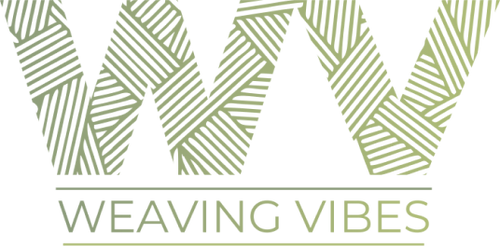When it comes to sustainable fashion, one fabric keeps making headlines, hemp fabric. Known for its durability, breathability, and eco-friendly nature, hemp is fast becoming a preferred choice for designers and conscious consumers alike. But the question many still ask is: Is hemp fabric good for clothing?
A quick look at hemp fabric vs cotton shows hemp is more sustainable, needs less water, and lasts longer. Cotton, while popular, is resource-heavy. If you’re exploring sustainable clothing options, hemp is worth serious consideration.
Environmentally Friendly
Hemp is a natural winner when it comes to sustainability. Unlike cotton, it requires minimal water and grows without pesticides or herbicides. This saves resources and prevents chemical runoff into soil and water.
The crop matures in just 3-4 months and enriches the soil, making it a farmer-friendly rotation crop. Hemp also absorbs large amounts of CO₂, reducing fashion’s carbon footprint.
For anyone seeking sustainable clothing options, hemp offers a rare balance of fashion and responsibility. Beyond farming benefits, hemp textiles are also biodegradable, ensuring it doesn’t contribute to landfill waste. Its natural strength means hemp clothing lasts longer, which directly counters today’s throwaway fast-fashion culture.
Designers are embracing hemp because it dyes beautifully, blends well with other natural fibers, and develops a soft, lived-in texture over time. Plus, its anti-bacterial and UV-resistant properties make it practical for everyday wear. From casual t-shirts and denim to luxury fashion pieces, hemp is carving its place as both a sustainable and stylish alternative.
A farmer harvesting tall hemp plants which provides long staple hemp fiber, showcasing the sustainable cultivation process of hemp for fabric production
Breathability and Comfort
Eco-friendly doesn’t mean uncomfortable. Hemp fabric is naturally breathable, making it perfect for hot and humid climates. It has moisture-wicking properties, keeping you cool and dry, while offering natural insulation in cooler weather. Plus, hemp softens with every wash, giving you long-term comfort without losing shape.
The result? Clothing that’s light, airy, and versatile for daily wear. Whether it’s a relaxed shirt, yoga wear, or everyday basics, hemp fabric for clothing adapts beautifully to different lifestyles. Its durability ensures you don’t have to compromise on comfort or sustainability, hemp simply gives you both.

A close-up of our Original Haze 100% hemp fabric draped gracefully highlighting the fabric’s soft texture, natural sheen, and breathable quality.
Hemp Material Pros and Cons
Here’s a clear look at hemp material pros and cons:
Pros of Hemp Material
- Durability - Strong natural fibers extend garment life.
- Eco-Friendliness - Minimal water, no chemicals, low carbon footprint.
- Comfort - Breathable, moisture-wicking, softens with time.
- Longevity - Holds shape and strength for years.
Cons of Hemp Material
- Stiffness - Feels firm when new but softens with washes.
- Cost - Priced higher than cotton, but its lifespan offsets the investment.
Overall, the pros significantly outweigh the cons.
Hemp Fabric vs Cotton
- Water Usage: Cotton demands huge water inputs, while hemp thrives with little irrigation.
- Chemicals: Cotton relies on pesticides; hemp doesn’t need them.
- Durability: Hemp outlasts cotton, resisting wear and tear.
- Cost: Cotton is cheaper upfront, but hemp’s longevity balances the value.
So, is hemp fabric good for clothing? Absolutely-especially if you value sustainability, durability, and comfort.

Hemp fabric shirts on wooden hangers, showcasing sustainable hemp fabric for clothing with natural texture and breathability.
Conclusion
If you’re seeking sustainable clothing options, hemp deserves a place in your wardrobe. From eco-friendly farming to breathable comfort and lasting quality, the benefits of hemp fabric are undeniable.
Though slightly pricier and initially stiff, these are small trade-offs for clothing that’s stylish, sustainable, and built to last.
At Weaving Vibes, we see hemp as more than fabric-it’s the future of conscious fashion. Choosing hemp means choosing comfort, responsibility, and long-term value.
FAQs
Is hemp fabric itchy?
No. Hemp may feel crisp at first but softens quickly with each wash, becoming very comfortable and breathable.
How does hemp compare to linen?
Both are breathable and natural. Hemp is generally stronger, longer-lasting, and more sustainable.
Can hemp fabric be dyed?
Yes, hemp holds color well, whether naturally dyed or digitally printed.
Does hemp shrink?
Like most natural fabrics, it may shrink slightly on the first wash, but stabilizes afterward. If proper care is taken, hemp fabric stays strong and soft without much shrinking over time, making it long-lasting and durable.
Is hemp fabric good for sensitive skin?
Yes. Hemp fabric is naturally hypoallergenic and resistant to mold and mildew, making it gentle on sensitive skin. Its breathable and chemical-free nature also reduces irritation, making it an excellent choice for everyday wear.
Where can I find different hemp fabric samples?
If you're looking to explore various hemp fabric textures and types before making a decision, our fabric catalogue book offers a great way to see and feel the different options available. It's the perfect resource for anyone looking to add hemp fabric to their collection!



